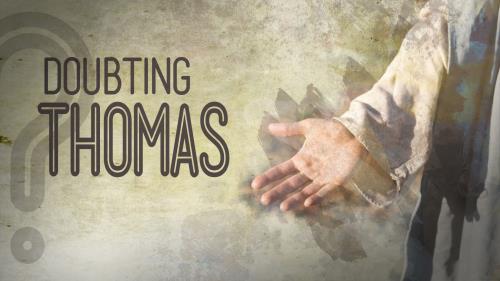-
Seeing But Not Believing
Contributed by John Hamby on Nov 3, 2025 (message contributor)
Summary: Even having seen the rising of Lazarus to life again the Religious leader reject Jesus and determine to kill him.
Seeing Without Believing
John 11:46-57
There are some things in life that you can be neutral about, but Jesus is not one of them, “A number of years ago a lady was invited by a friend to go to a gospel meeting. She replied, “I am afraid to go for fear that I will get converted.” Imagine. She was afraid she might get straightened out with God. On another occasion a minister said to a certain woman in his congregation, “I haven't seen your husband lately. Has he lost interest in the gospel? She answered, “Well, he is afraid to come; for when he comes and hears the Word, it takes him nearly two weeks to get over it.” [James Montgomery Boice. “The Gospel of John.” (Grand Rapids: Zondervan, 1985) pp. 779-780]
In our study of John’s gospel Jesus has just raised Lazarus back to life after being dead for four days. This incredible miracle was witnessed by numerous people and therefore could not be denied. The miracle of the raising of Lazarus back to life was a polarizing moment in history. Those that witnessed the event were left to decide; would they believe in Jesus or would they fail to believe. Would they become his followers or His enemies?
First, The Choice To Be Made. (11:45-46)
Two groups of people left the cemetery following the rising of Lazarus. One group headed back to Bethany to the home of Mary and Martha to celebrate this marvelous miracle. The other group took the road to Jerusalem to report to the Pharisees.
• The Reaction of Faith. (v. 45)
What a sad contrast. John 11:45 ended the story of the raising of Lazarus by saying “then many of the Jews who had come to Mary and had seen the things Jesus did believe.” Many, but not all. Sadly, seeing is not always believing, as this group of "some" testify! They had just witnessed a miracle that only God could do and yet they refused to believe Jesus was the Messiah.
There is a saying that we are all familiar with, “Seeing Is Believing!” but that is not always true. Sometimes religious skeptics will say, “Show we enough proof and I will believe!” But even if they saw a genuine miracle they would look for some natural explanation or find some other reason to continue in unbelief.
But in John’s Gospel account he recorded seven miraculous signs that Jesus performed during His ministry. John said that he had recorded these signs “so that you may believe that Jesus is the Christ, the Son of God; and that believing you may have life in His name.” (20:31) But not all that saw Jesus’ miracles in person believed in Him, just as not all today who read the eyewitness accounts of Jesus’ miracles in the Gospels believe in Him. The barrier to faith is that we love our sin.
The Apostle Paul points out in Romans 1:18-20 that although all people are given sufficient evidence of the existence and power of God instead of believing they actually suppress the truth. Paul says, “Because that which may be known of God is manifest in them, for God has shown it to them. (20) For the invisible things of him from creation of the world are clearly seen, beings understood by the things that are made, even his eternal power and Godhead, so that they are without excuse.” (Rom. 1:19-20)
There is evidence of intricate design in all of creation, from the molecular to the global level. But unbelief not only fails to accept the evidence but actually suppresses that evidence due to the hard-ness of human heart. For if one recognizes that God exists and created all things, then sinners know that they’re in big trouble. Because they do not want to be accountable to an all-powerful God they invent other explanations like Evolution to avoid the reality of God so that they can continue in sin.
• A Reaction of Unbelief. (v. 46)
“But some of them went away to the Pharisees and told them the things Jesus did.”
What an interesting little word “but” is, it always means you have turned a corner; things are not quite the same. Men are free to choose, but they are not free to choose the consequences of that choice. The point is that each individual made a choice and no one forced to make that decision. This was a reaction of unbelief although John does not say so explicitly. They make no statement they just rush off to inform Jesus’ known enemies.
Of all the miracles that Jesus had performed, the raising of Lazarus from the dead should have caused the Jewish leadership to accept that Jesus was indeed the promised Messiah, the son of God.
Their response reminds one of the responses found in the book of Revelation when divine judgement is being poured out on the Earth humanity's response even though they can discern without question that it is God sending the judgement and yet what is their response? John describes it writing that "men were scorched with fierce heat; and they blasphemed the name of God Who has the power over these plagues (they knew exactly who was behind the scenes!); and they did not repent, so as to give Him glory." (Rev 16:9). We see belief in John 11:45 and unbelief in Jn 11:46. This in the response of all humanity response to Jesus in miniature. Once again, we see that Jesus divides all humanity even as He did on the cross between two criminals, one saved and the other lost.

 Sermon Central
Sermon Central



